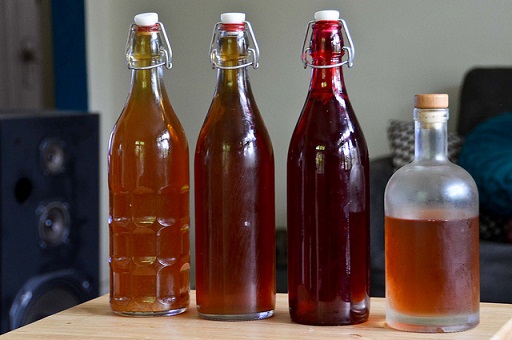Gut Health Foods – Five Vegetables to Eat
Your gut helps to power up your whole body, and when someone suggests you “go with your gut,” they are probably more right than you realize.
If you’re looking for ways to improve your own gut health, one of the best ways to do it is to eat healthy and delicious vegetables!
Your gut is home to 40 trillion bacteria that are perpetually hard at work to maintain your digestive health, boost your immunity and keep you safe from illnesses and infections.
If you love your microbiome enough to wear a shirt that reads “I heart guts” on it, here is everything you need to know about gut health and the best vegetables that will help you maintain it.
Why Are Mixed Vegetables Important in Gut Health?
Mixed vegetables play a key role in healing your gut and keeping it happy. The gut bacteria require fiber to function effectively and maintain smooth bowel movements. Fiber also helps to line the gut walls, preventing leaky gut syndrome.
Vegetables are a great source of fibers and prebiotics, which are essentially the nourishing source of probiotics or the good bacteria. They break down these dietary fibers (which are always plant based) to ferment and create helpful enzymes.
Prebiotics and prebiotic supplements, when fermented by bacteria, release butyrate that is known to help the gut lining. Butyrate is also created when you exercise and is helpful to maintain your overall gut health.
Top Vegetables for Healing Your Gut
Vegetables from every source and form are crucial for a healthy gut. In a time and culture when many people’s diets are largely processed food based with very low nutrition value, it is important to consciously add green vegetables to obtain the required fiber, minerals and vitamins. While prebiotic supplements are a good way to help encourage a healthy gut, there truly is nothing better than the genuine article.
When you cut out sugars and processed foods from your diet, the harmful bacteria in your gut automatically begin dying. You can help maintain an ideal environment for probiotics with healthy foods, like these five vegetables.
Dandelion Greens
Dandelion greens are an edible weed that is great for healing your gut. These super healthy dandelion greens are power packed with probiotic boosting fibers and tons of different vitamins and minerals.
They are rich in the prebiotic inulin that has been studied and proven to boosts your gut’s production of healthy, good-for-you bacteria, like Bifidobacteria.
There are a number of gut friendly benefits of boosting the levels of Bifidobacteria in your gut. It helps enhance bowel movements with frequent and soft stools.
Majority of the body’s immune cells are found in the gut. Bifidobacteria levels help keep your body’s immunity high and give it the necessary boost whenever there is a threat of infection or illness.
When there are more good bacteria in your gut, the levels of harmful bacteria automatically begin to drop. Harmful bacteria cannot survive in the ideal gut environment created by probiotics. Dandelion greens are also known to improve blood lipids and cholesterol levels.
These greens have a bitter flavor that can be refreshing to some people. You can sauté them with onions for a mild bitter sweet flavor or add them to spring onion soups. You can drink dandelion greens as tea or use them in salads.
Asparagus
Asparagus is a crisp spring vegetable that boosts gut health and aids in digestion. This gut health foods green stalks are great for you and can be actually very delicious when sautéed or simply added to salads. They are rich in prebiotics that help to keep the good bacteria levels high in your system. Eating asparagus will prove that you are part of the I heart guts gang.
Asparagus is also rich in inulin like dandelion greens, and can promote regularity of bowel movements. Inulin has been known to provide multiple benefits to the digestive system, apart from nourishing probiotics to establish colonies quicker.
Asparagus are great for people who suffer from constipation, bloating and other similar signs of digestive disorder. You can add lightly steamed asparagus to your daily bowl of quinoa, rice or any other healthy whole grain, to get a rich and delicious meal packed with fiber and gut friendly goodness.
Seaweed
This is not your regular mixed vegetables and is hardly a weed but it is one of the best gut health foods. It is sea algae that are good for you and healing your gut. Seaweed is nutrient rich with many fiber rich benefits for your gut. A study in Japanese women concluded that good gut bacteria levels were increased after they had a diet rich in seaweed.
Brown seaweed consists of a substance called alginate, which is found to strengthen gut mucus, slow down digestion and make food release its energy slower.
You can incorporate seaweed into your diet in a multitude of ways. You can make seaweed salad, or add them to your soup. You can also make nori of seaweed, a dish which includes dried seaweed made into sheets. Moreover, you can add edible kelp and beans to seaweed and make a delicious pot of stew.
Broccoli
Mothers knew more than they let on. The health benefits of broccoli are undeniable, even if not everyone is a major fan of these cruciferous vegetables. A 2017 study, published in the Journal of Functional Foods, explained the benefits of broccoli on intestinal health, by feeding them to mice.
The effects may apply to other vegetables in the cruciferous family, like Brussels sprouts, cauliflower, cabbage, and kale. You can grate them and pile on top of your favorite salads or add them to stir-fry vegetables. You can also roast them and eat with a healthy yogurt based dip.
Jerusalem Artichoke
This unique tuber goes by various names of sunchoke, sunroot, or Earth Apple. Jerusalem artichoke is widely overlooked among the healthy options for healing the gut naturally. This tuber is rich in inulin and is among the best foods for gut health.
However, do not let the name fool you, because it is nothing like the leafy green artichoke. This root is savory, starchy and has a slightly nutty and sweet flavor.
The prebiotic effects of Jerusalem artichoke was published in the British Journal of Nutrition after a 2010 study concluded that it could increase the fecal Bifidobacterium level and causes an increase in the level of the Lactobacillus/Enterococcus group.
Gut Health Foods Matters
While all vegetables are helpful, these 5 vegetables are especially beneficial to your gut health. Quality and diversity is the key when it comes to healing your gut naturally. Make sure to include all vegetable colors in your diet. But pay special attention to these five vegetables to ensure a happy gut and better health.




